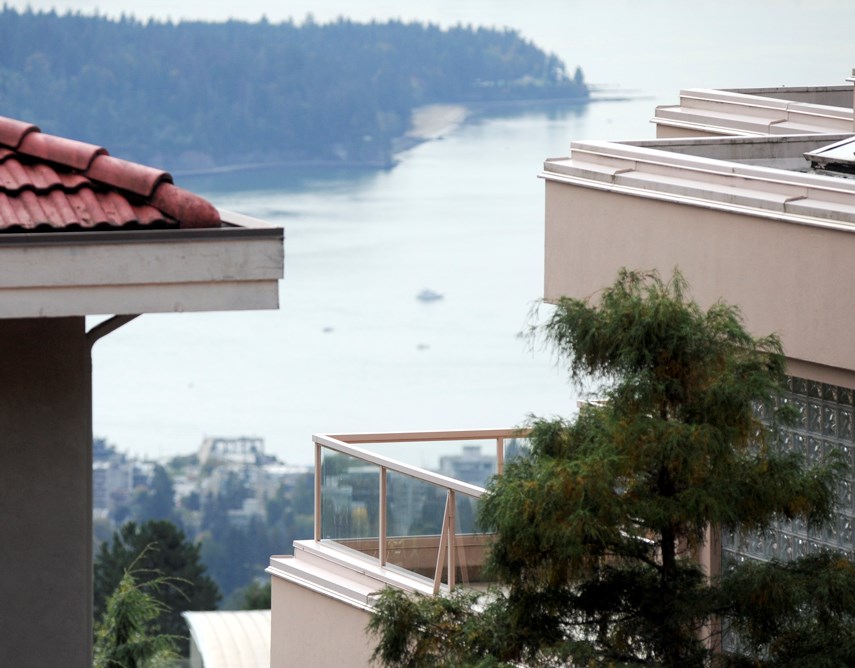When it comes to the housing affordability crisis, West Vancouver remains an outlier among outliers, according to two new federal studies.
A report from the Canadian Housing Statistics Program found home prices in West Vancouver most drastically detached from local incomes in three provinces.
The study looked at the sale price of homes in B.C., Nova Scotia and New Brunswick in 2018 and compared them to the income of the buyers to determine a price-to-income ratio.
The City of North Vancouver’s price-to-income ratio was 7.1, while the District of North Vancouver’s was 8.4. – both well above the provincial average of 5.4, but closer to the Metro Vancouver average of 7.4.
West Vancouver’s, however, was a price-to-income ratio of 17.2.
The researchers concluded that that having other sources of wealth was a more important factor in purchase prices than local incomes.
“Does this mean that owning property is based on the ability to select who your parents are and where you were born? That’s a big problem,” said Andy Yan, director of Simon Fraser University’s city program. “Whether it’s the second generation or global wealth, that’s what’s needed to actually be in the housing market.”
Canada prides itself on a narrative of economic mobility, which is threatened when shelter prices and incomes become so detached, Yan said.
It also likely means longer waits for a latte when there isn’t enough local staff to work, he added.
“I think that that inevitably actually has effects in the local economy, whether it’s Park Royal or Dundarave,” he said.
A separate batch of data from Statistics Canada released last month shows, again, West Vancouver continues to the highest proportion of homes owned by people who live outside the country – 7.9 per cent overall. But Yan said if you look only at single-family homes built in the last 10 years, the number jumps to 13.2 per cent.
“West Van is pretty much the poster child for this stuff,” he said.
In the District of North Vancouver, non-residents make up 3.4 per cent of all owners. Like West Van, that number increases with homes built between 2011 and 2020 to seven per cent for single detached and 6.2 per cent for condos.
In the City of North Vancouver, five per cent of all homes are owned by someone outside Canada with, again, newer builds being more popular (7.3 per cent).
Across the Metro region, 6.2 per cent of all homes are non-resident owned although 10.3 per cent of the houses and condos built in the last 10 years belong to someone who lives outside the country.
The numbers don’t take into account citizenship status of the owner, and there is also no way of knowing if the properties are put back on the market as rentals. But the data is yet another window into one of the world’s least affordable housing markets, Yan said.
“Ten per cent is a pretty big chunk,” Yan said. “It matters because it gives us an insight in how housing is consumed and by whom. It tells elected officials in the city what kinds of developments should be prioritized versus others, and what is the most acute need in terms of housing. Basically, it’s putting back together again the role of supply and demand.”
The federal government has tracked and released data on non-resident owners for only the last three years but Yan said the numbers are holding steady, despite a number of government initiatives to cool demand from speculators and foreign buyers.
“In view of the foreign buyers’ tax, speculation and vacancy tax and school tax, there seems to be a lot more give toward the purchase of real estate in Vancouver by people who don't live in the country,” Yan said, comparing the taxes to an exclusive country club upping their annual fees by a few per cent, which does nothing to deter the people for whom price is no object.
West Vancouver Mayor Mary-Ann Booth said the data and the growing disparity is troubling.
“This definitely indicates further the alarm that I've been sounding since probably 2014,” she said. “Obviously people's local income, for the most part, can't afford to buy these houses, let alone leave them empty.”
Booth said she continues to press Municipal Affairs Minister Josie Osborne for policy options not currently on the table for the municipality.
“We still would really like to have our own empty homes tax in West Vancouver, as well as or alternatively, to get some of the revenue that's being collected through the [speculation and vacancy] tax so that we can … actually use it to provide affordable housing.”
The municipality has lined up contractors to build a below-market rental building on 2195 Gordon Ave, Booth noted, but she said council will have to ensure that rental, below-market and smaller homes continue to be added to West Vancouver’s inventory.
“I truly believe that we can increase the supply of apartments, condos, townhouses and duplexes, and if we can increase the supply to a significant extent, I do believe that will also affect the price,” she said.



